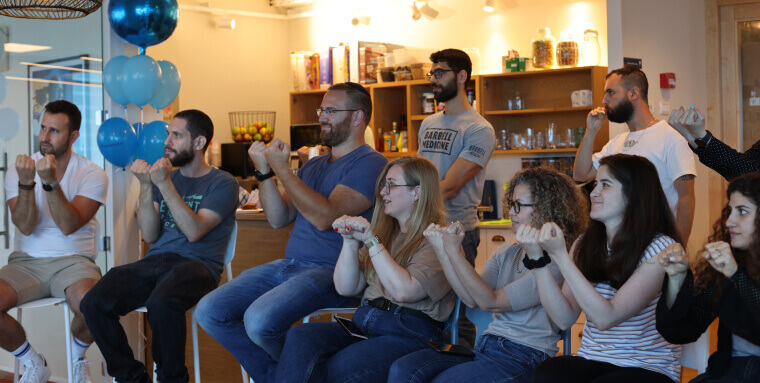Corporate Social Responsibility (CSR) has become a crucial aspect of business operations in today's socially conscious world. Companies like yours are increasingly recognizing the importance of giving back to the community and making a positive impact beyond profit margins. One powerful way to enhance your CSR strategy is by partnering with nonprofits. These organizations are dedicated to championing various community needs, but they can also provide unique opportunities for your business to contribute meaningfully.
Fortunately, we have incredible nonprofit partners who are happy to share how businesses actively engage with their organizations. In honor of March being Developmental Disabilities Awareness Month, we asked some nonprofit leaders in the space to tell us a bit about their corporate relationships. Let's explore five effective ways to utilize nonprofits for your CSR strategy, along with insights straight from nonprofit leaders themselves.
1. Sponsor Events
Events hosted by nonprofits offer an excellent platform for businesses to showcase their commitment to social causes while engaging with the community. By sponsoring these events, your company will not only demonstrate your support for a cause but also open the door for more opportunities among participants.

Amanda Potratz, from UCP of Greater Dane County, highlights the significance of sponsorship in bringing communities together. She shares, "The event that truly brings our families and communities together is our Fall Family Frolic! It's an inclusive, free community picnic entirely sponsored by local businesses and volunteers."
Sarah Lilly, the Development Officer at Cerebral Palsy Midlands shares, “We currently hold a charity seat in BNI: Business Network International. This gives us access to a global network and community. BNI have supported, sponsored and donated to our charity events to ensure their success.”
Such events not only foster community cohesion but also raise funds crucial for supporting the nonprofit's programs.
2. Donate Products, Services, or Funding
Nonprofits often rely on donations to sustain their operations and fulfill their missions. Businesses like yours can contribute by donating products, services, or financial support, making a direct and tangible impact on the causes they care about.
Cheryl Cassidy, Executive Director of Nova Center of the Ozarks, emphasizes the importance of financial donations and product contributions. She explains, "We partner with local businesses to fundraise but are not solely supported by them. We are supported by businesses through financial donations or products. All donations go 100% to the individuals we serve."
Hannah Rickels, Marketing Director of Camp Courageous says, “We are fortunate to receive support not only from our local community but also from businesses across the Midwest. As the Camp primarily relies on donations, any support-whether it is through volunteering time, providing materials, financial contributions, or other means, helps us fulfill our mission.”
These contributions play a vital role in enabling nonprofits to provide essential services to their communities. They also give you as a business an active role to play in improving society at large.
3. Invite Nonprofits to the Office
Bringing nonprofits into the corporate environment can facilitate meaningful dialogue and collaboration. You can invite representatives from these organizations to share the experiences and goals of the communities they represent and explore potential partnership opportunities.

Carolyn Suero, Vice President of Admissions & Development of Alternatives Inc., shares her experience, stating, "A few months ago, Alternatives received a grant from a local corporation to develop a presentation as part of the company's Employee Resource Groups." This initiative not only educates employees but also fosters a culture of empathy and social justice within the organization.
4. Provide Employee Volunteer Opportunities
Encouraging employees to volunteer by providing volunteer days not only benefits the community but also enhances your employee morale and engagement. Volunteer activities allow staff to connect with the community, develop new skills, and gain a sense of fulfillment from making a positive impact.

Sarah Lilly, Development Officer at Cerebral Palsy Midlands, recommends organizing volunteer days for staff. By participating in such initiatives, employees not only contribute to meaningful causes but also strengthen their sense of purpose and camaraderie within the company.
Diana Martin, Managing Director of Smile Farms, Inc. shared “Hundreds of 1-800-Flowers employees have volunteered with Smile Farms over the years. They regularly host pop-up sales, peer-to-peer fundraisers, and many other in-house events to benefit Smile Farms.”
5. Hire Qualified and Vetted People with Disabilities
Promoting diversity and inclusion in the workforce is a fundamental aspect of CSR. Your business can demonstrate your commitment to these principles by hiring qualified individuals from marginalized communities, including people with disabilities.
Christie Hight, Development & Communications Director at The Adult Skills Center (TASC), highlights the importance of providing employment opportunities to people with disabilities. She emphasizes, "An important partnership is when a business decides to hire someone we support with developmental disabilities." Such initiatives create a more inclusive society while providing individuals with disabilities the opportunity for personal growth and independence.

All in all, partnering with nonprofits can offer your business a myriad of opportunities to enhance your CSR strategy and make a meaningful difference in society. Whether through event sponsorship, donations, employee engagement, or inclusive hiring practices, you can leverage these partnerships to create a positive impact that extends far beyond your bottom line.
We would know! Our collaborative work with our nonprofit partners is an integral part of our company DNA. You can learn more about our Nonprofit Partnership Program here.
A big thank you to all the Nonprofits working so hard for accessibility and inclusion who shared insights on this topic: Inclusive Education Project, Helpers Community, Best Buddies Canada, National Ability Center, Community Connections, Inc., Workpower Australia, UCP of Greater Dane County, Cerebral Palsy Midlands, Nova Center of the Ozarks, Camp Courageous, Alternatives Inc., The Adult Skills Center (TASC), Smile Farms, Inc.


